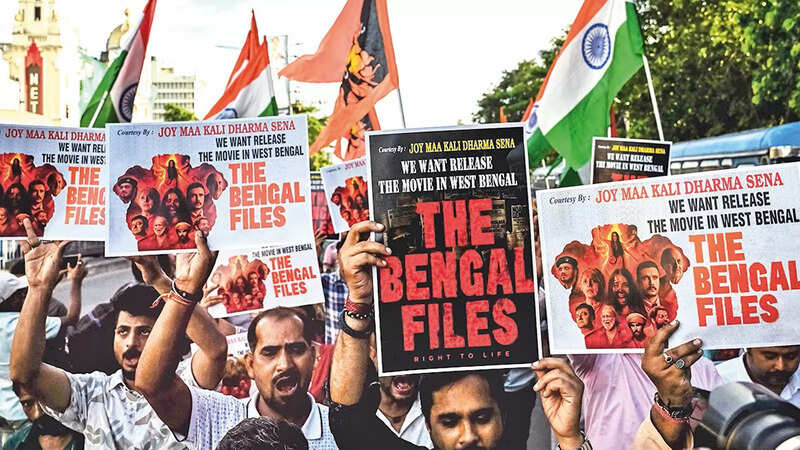
The West Bengal government faces criticism for allegedly banning ‘The Bengal Files’, which centres on the 1946 Kolkata and Noakhali riots. The film’s focus on Hindu victimhood and challenges established narratives of the Partition era.
There is an understandable unwillingness among the notables who habitually sign petitions and participate in candlelight protests to get involved in the escalating controversy over the West Bengal govt’s unofficial ban on the screening of ‘The Bengal Files’. Since the filmmaker has a history of pillorying the Left-liberal ecosystem — he coined the evocative term ‘urban naxals’ — and exposing its strategic silences, as on the ethnic cleansing of Kashmiri Pandits, it is unlikely that denial of his freedom of expression will agitate those who otherwise claim proprietorship over ‘constitutional morality.’
What is intriguing is why a film centred on the horrific pre-Partition riots in Kolkata and Noakhali in 1946 should evoke such a hostile reaction from a political party that is avowedly committed to the preservation and promotion of the Bengali asmita. The five-day butchery in Kolkata that followed the Muslim League’s (ML) Direct Action Day on Aug 16, 1946, was not a case of a political programme that unwittingly spun out of control.



